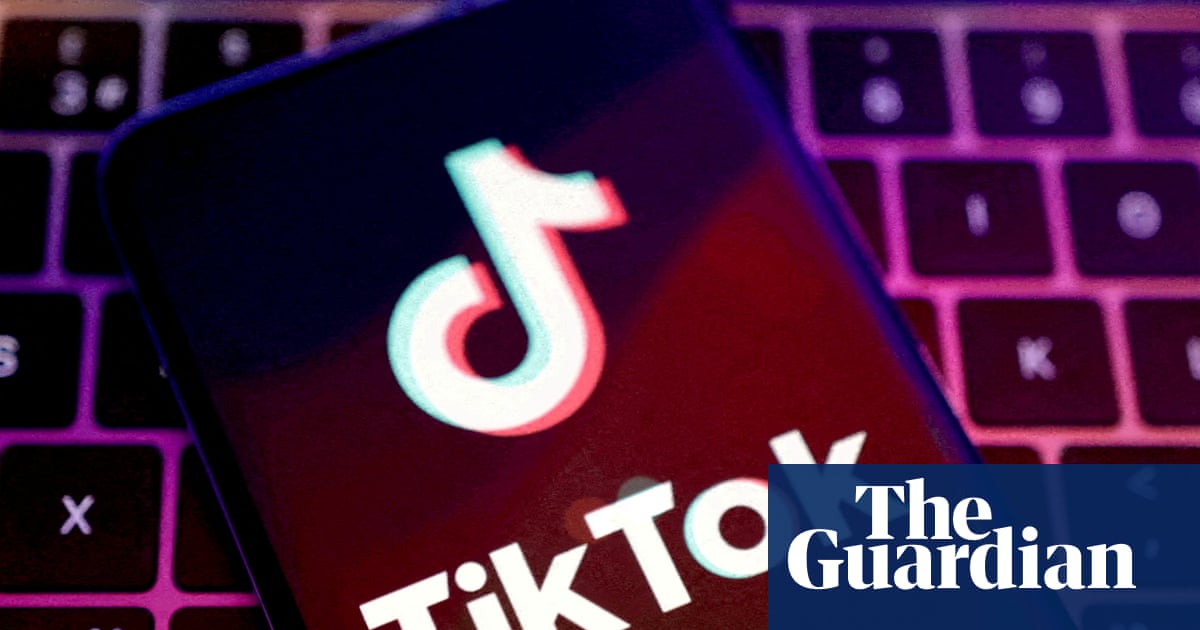TheEuropean Commissionhas said TikTok is in breach of EU digital laws that require transparency over who pays for advertising.
The commission reached a preliminary verdict on the Chinese-owned short video platform’s advertising policy, havinglaunched an investigation in February 2024. The company could face a fine of 6% of global annual turnover, if the commission upholds this view.
The commission said a separate EU inquiry into TikTok’s suspected failure to guarantee election integrity in Romania, which was launched last December, was ongoing and was a priority.
The commission’s verdict that TikTok lacks transparency over advertising comes four days before “super Sunday”, when voters go to the polls in Poland, Portugal and Romania.
Under the EU’s Digital Services Act (DSA), large internet companies are obliged to publish an advertisement library, detailing ad content, users being targeted and who paid for the publicity. The commission said TikTok did not provide this information, nor allow the public to search for it. The advertisement repository is seen by EU officials as a vital tool enabling researchers to detect scam ads and coordinated campaigns that aim to disrupt elections.
Romania was plunged into political chaos last year whenthe first round of the presidential election was annulled, after the country’s intelligence services alleged that Russia had mounted an online campaign to promote a far-right outsider, who topped the poll.
On Sunday, Romanian voters will choose between two candidates in the second round of the rescheduled presidential elections.
The European Commission launched an investigation last December into whether TikTok had failed to tackle risks to the integrity of Romania’s presidential elections. Ursula von der Leyen, the commission’s president, said there were “serious indications that foreign actors interfered in the Romanian presidential elections by using TikTok”.
TikTok’s alleged failure to provide an advertising library was said to make it harder for EU officials and other researchers to determine whether fake ads were used during election campaigns, including in Romania. But the commission cautioned against assumptions that TikTok would be found to have violated the election integrity obligations of the DSA.
Thomas Regnier, a commission spokesperson, said there was no direct link between the December investigation and its preliminary view published on Thursday of a breach of EU law relating to advertising transparency.
“Of course it’s not helping that your ad repository is not working. That’s one fact because it doesn’t help us to assess if there were fake or scam ads being used in the context of elections,” Regnier said. But he added: “The fact that the ad repository is not working in the context of this February investigation of last year is absolutely not prejudging the outcome of the December investigation.”
As part of that December investigation, EU officials are studying actions TikTok said it took to prevent election interference in Romania.
A TikTok spokesperson said the company was reviewing the commission’s preliminary findings on its ad repository. “While we support the goals of the regulation [DSA] and continue to improve our ad transparency tools, we disagree with some of the commission’s interpretations and note that guidance is being delivered via preliminary findings rather than clear, public guidelines,” the company said.
The company now has the right to examine the commission’s investigation file and mount a defence. If the commission confirms its current view, TikTok could be fined up to 6% of its annual global turnover and be obliged to take measures to remedy the issue.
The commission said it continued to investigate other suspected offences under EU law, including whether TikTok’s algorithms led users down damaging content “rabbit holes” and had addictive effects. It is also investigating TikTok’sage verificationand child safety policies. These inquiries were launched at the same time as the investigation into the ad repository last February, but remain incomplete.
TikTok has previously said that it cooperates with relevant authorities around elections “providing them with dedicated channels through which they can report content they believe may violate either our community guidelines or applicable regulations”.
